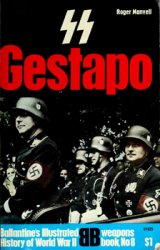As it is a well-known subject, only a brief summary of the foreign policy basis for military relations of the time is necessary. Both powers came off badly from the 1919 Versailles peace treaty. Their joint anti-Versailles revisionism brought them together and gave rise to the slightly romantic idea of a German-Russian ‘companionship of misfortune’ (Schicksalsgemeinschaft), a term coined by Karl Radek, the Germany expert of the Comintern and one of Moscow’s secret emissaries during his early contacts with Berlin.
The world and with it the Entente will unquestioningly see the growing of a German-Russian community of interests. Whatever the future has in store, either along revolutionary or counterrevolutionary lines.
Karl Radek wrote this in the autumn of 1920 for a brochure published in Germany.17 At that time Moscow was still hoping for a revolutionary variant of the German-Russian unification in the shape of a proletarian class alliance resulting in a Soviet-Germany.
At the same time, the German bourgeois-conservative elite was still holding the reverse hope that, by conjuring up the general threat to Europe through Russian Bolshevism, the Entente would make military concessions to Germany. However, the Spa conference in the summer of 1920 confirmed the prohibitory provisions of Versailles, thereby crushing these hopes and leading to a complete U-turn in favour of cooperation with Soviet Russia. Two statements of General von Seeckt from the first half of 1920 clearly illustrate this. The first dates from January 1920 and declares: ‘We are prepared to be the bulwark against Bolshevism, in our own interest which is also that of the Entente. For this it should allow us the necessary arms.’18
The second, only shortly after, reads: ‘Only a firm union with Great Russia will allow Germany to regain its world hegemony. Even if the powers of the Entente fight this with all available means, our mutual interests will eventually bring about German-Russian unification by natural force.’19
Further development took the path of, in Radek’s terminology, the ‘counterrevolutionary’ variant of the German-Russian alliance,
I. e. it was based on opposite political doctrines. For Moscow this meant stressing very highly vis-a-vis its imperialist competitors from the Entente the political differences of Germany as a bourgeois-capitalist and therefore potentially imperialist state in order to avoid an anti-Soviet alliance of the European powers. The military vacuum Germany represented in the centre of Europe due to its disarmament in accordance with Versailles was seen as highly dangerous by Moscow and it did not hesitate to demand openly and plainly from Germany a resolute rearmament programme in contravention of the terms of the peace treaty.
Neither ‘serving the allies to win points’, nor hope for help from the League of Nations, this ‘tool for the systematic humiliation of Germany’ would regain the country’s national greatness - although only ‘factors of power: dollars, dreadnoughts and aeroplanes’ could achieve this. This was written in Pravda in the autumn of 1926,20 in the style of the German-national opposition, was addressed to Berlin and therefore opposed Stresemann’s detente policy vis-a-vis the Entente powers. In other words: Germany must rearm so that Moscow could reap a twofold advantage:
1. To keep tensions up as high as possible on the imperialist side.
2. To participate in the German rearmament efforts and use them for its own military gain.
In this connection it’s only necessary to touch briefly on military policy basis for such cooperation. In the military sector, the main reasons (for an alliance) were the rigid arms limitations as laid down in Part V of the Treaty of Versailles, which only permitted Germany a poorly equipped regular army of 100,000 men. This meant almost inevitably losing contact with the international development of military technology.
The point is that both countries were basically complementary. Germany was defeated in military terms and politically humiliated, but remained a great power as far as industry, science and technology were concerned. The Soviet system was victorious and successful in maintaining its self-esteem vis-a-vis the others but was greatly weakened economically and underdeveloped in science and technology. The German potential was there but remained unexploited because of political handcuffs. Russia had the political freedom of action but lacked the potential to make use of this freedom.
Both countries faced the need for a new military start under difficult structural conditions, as well as changed political circumstances. We therefore see that there are sufficient structural reasons, independent of governments of varying party-political colours or individuals on both sides, to sustain the cooperation in the military field as well and thereby achieve stability and constancy.21




 World History
World History









